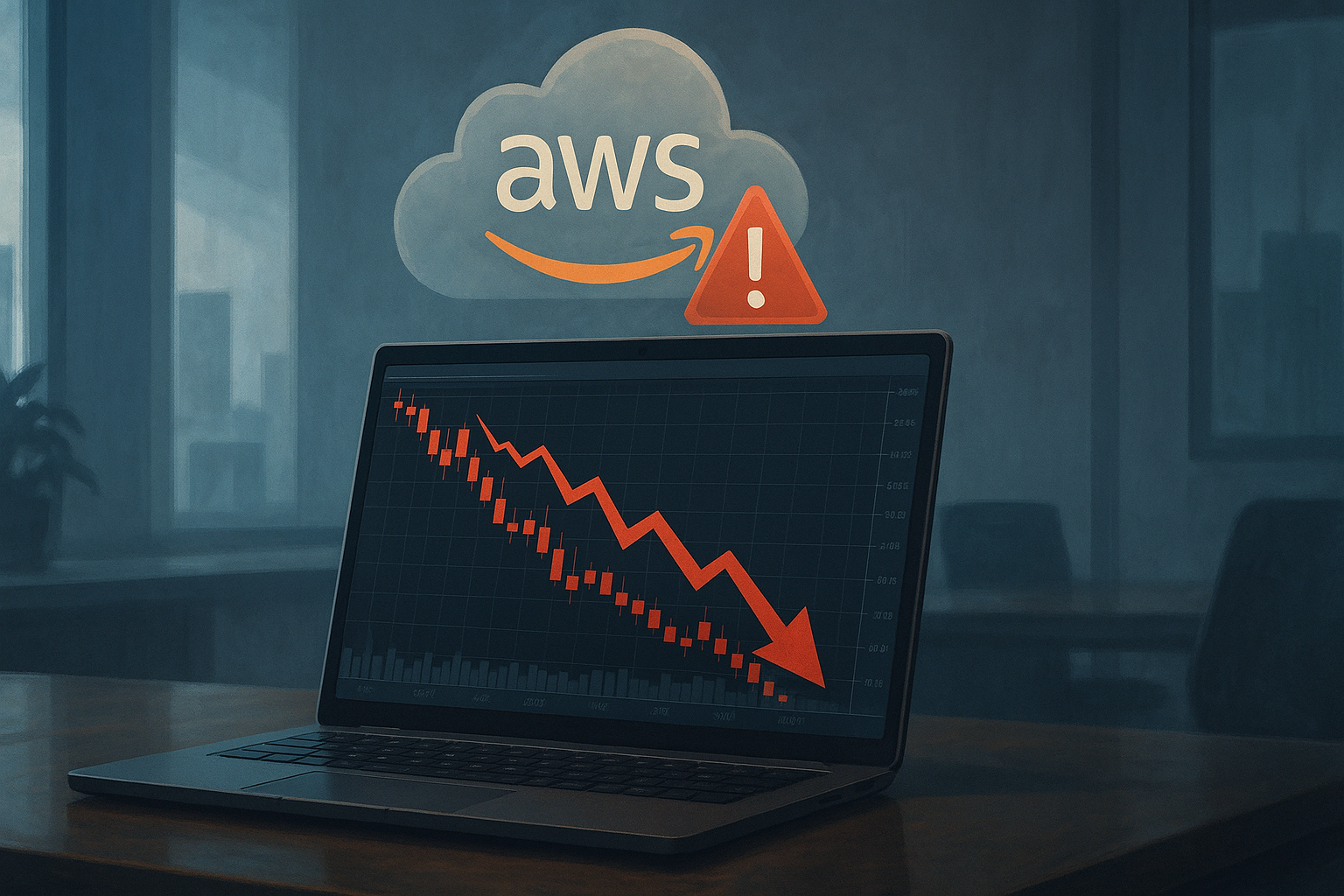Amazon Web Services experienced a significant outage today, and if you're wondering what that means for your stock holdings, join the club. Nothing quite captures the fragility of our digital economy like watching half the internet collapse because one company's servers decided to take an unscheduled coffee break.
The AWS disruption hit shortly after 9 AM Eastern, affecting everything from streaming services to online shopping platforms. Even the trading terminals at several major firms reported sluggishness, which feels a bit like watching your car's check engine light come on while driving through a tunnel during a thunderstorm.
Markets, predictably, responded with their usual nuanced approach—immediate panic selling of anything remotely connected to cloud computing. Amazon shares dropped nearly 3% in early trading, dragging down the broader tech sector in what I like to call the "if one sneezes, they all catch cold" effect.
But here's where things get interesting. The market's reaction to cloud outages follows a fairly consistent pattern that I've observed over the years. I call it the "three-day cloud rule": Day one brings the selloff (that's today), day two brings the stabilization as investors realize the world isn't ending, and day three often sees a modest rebound as service is restored and companies issue reassuring statements about "implementing measures to prevent future occurrences."
The question for investors isn't whether AWS will fix the problem—they will, they always do—but rather how this outage might reshape the competitive landscape. Microsoft's Azure and Google Cloud are undoubtedly watching with a mixture of sympathy and opportunistic glee. Nothing sells reliability like your competitor's downtime.
For Amazon specifically, the financial impact will likely be minimal in the long run. Cloud outages are baked into investor expectations at this point—they're the digital equivalent of an airline's occasional canceled flights. Annoying? Absolutely. Business-destroying? Hardly.
The more substantive question is whether this outage accelerates the trend toward multi-cloud strategies. Companies have been gradually shifting toward using multiple cloud providers precisely to avoid the single-point-of-failure problem that today's outage highlights. If you're the CTO who chose to put all your company's digital eggs in the AWS basket, today is probably not your favorite day at the office.
For the broader market, the timing is unfortunately awkward. Tech stocks have been on shaky ground lately amid inflation concerns and rising interest rates. This AWS hiccup provides an unwelcome reminder of the sector's vulnerabilities just when investor confidence was already wavering.
If you're contemplating trading moves based on today's outage, consider this: The last five major cloud disruptions saw initial selloffs of 2-5% in affected companies, followed by complete recoveries within an average of eleven trading days. The market has a remarkably short memory for technical disruptions.
Look at what happened after Microsoft's major Teams outage last quarter—initial panic, followed by a collective shrug once service was restored. Three weeks later, the stock had not only recovered but reached new highs.
That said, there's a point where technical reliability becomes a legitimate business concern. If AWS outages become more frequent—and this is their second significant disruption this year—enterprise customers might actually begin migrating workloads to competitors. That would be a long-term problem for Amazon that goes beyond today's stock price movement.
For now, though, expect a bumpy ride today, potentially extending into tomorrow if the outage persists. But unless this turns out to be a truly catastrophic and prolonged disruption, history suggests this will be a blip rather than a trend-changing event for Amazon's stock.
In the meantime, if your favorite streaming service is down and you're stuck reading market commentary instead of watching your show, well... I suppose things could be worse.
